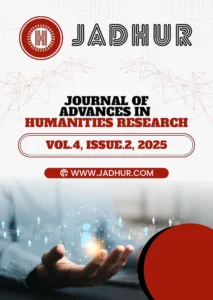My Article “AI Emcees” Was Cited in Vol. 4 Issue No. 2 (2025) of The Journal of Advances in Humanities Research. Read The Original Paper → https://doi.org/10.56868/jadhur.v4i2.306
I’m genuinely surprised and honored to share that my thoughts on AI’s impact on event hosting have found their way into academic literature. The Journal of Advances in Humanities Research, a peer reviewed scholarly publication in humanities plus social sciences, has cited my analysis of AI emcees and what they mean for those who earn a living behind a microphone.
I never imagined my professional musings would catch the attention of academic researchers, but I’m grateful that my practical experience in the events industry has contributed to the broader conversation about technology and human-centered professions.
What The Is Paper About

The article reviews 120 studies about AI virtual hosts in media. Authors describe large regional differences in adoption. Countries in East Asia implement them often, a result of cultural acceptance and government help. Western markets approach them with care, because of ethical concerns.
Research finds an empathy gap — people accept AI hosts in entertainment more than in news. Transparency builds trust. Difficulties include job loss, algorithmic bias along with questions of genuineness.
The study ends with a conclusion — successful integration needs human-AI models, ethical rules in addition to approaches that respond to culture. The balance new benefits with worries about media truth and jobs.
From Stage to Scholarly Citation
As someone who spends most of my time thinking about how to engage live audiences rather than academic ones, seeing my work referenced in a peer-reviewed journal feels a bit surreal.
The recognition shows value in bridging the gap between what event professionals experience and how researchers study technology change in service industries.
I always believed that people who work in events see how technology affects human interaction. The academic community agrees that this view is worth considering. Years of wondering if an AI could handle a microphone malfunction with the same grace as an emcee now contribute to humanities research.
What This Means (Beyond My LinkedIn Profile…)
The Journal of Advances in Humanities Research focuses on both theoretical and practical applications in humanities and social sciences. That’s why I believe that this citation is particularly meaningful. It’s not just academic recognition; it validates the idea that professional practitioners have insights worth studying.
This acknowledgment reflects a growing scholarly interest in how AI affects professions that rely heavily on human connection, spontaneity, and the ability to read a room. Event hosting, with all its unpredictable moments and human nuances, offers a fascinating case study for understanding where technology helps and where it simply can’t replace human expertise.
Looking Forward
While I’m flattered by this academic nod, I’m mostly excited about what it represents: a recognition that the events industry is evolving thoughtfully. We’re not just passive recipients of technological change—we’re active participants in shaping how these tools can enhance rather than replace the human elements that make live events memorable.
The citation reminds me that our industry conversations about AI, audience engagement, and the future of live events matter beyond our professional bubble. Sometimes the best insights come from those of us who are simply trying to do our jobs well while the world changes around us.
And yes, I’ll admit it—having my work cited in an academic journal does give me a small thrill. Not bad for someone whose main qualification is knowing how to work a crowd and handle the occasional technical disaster with a smile.
So, thanks to the researchers and the publisher for this honor.
Read The Original Paper
Guo, Q., Rungsrisawat, S., & Liu, C. (2025). “The Future of Talk Shows: AI-Driven Virtual Hosts and Their Impact on Media Communication: A Systematic Literature Review”. Journal of Advances in Humanities Research, 4(2), 37-57. https://doi.org/10.56868/jadhur.v4i2.306
Cover image (adapted): Designed by macrovector / Freepik



